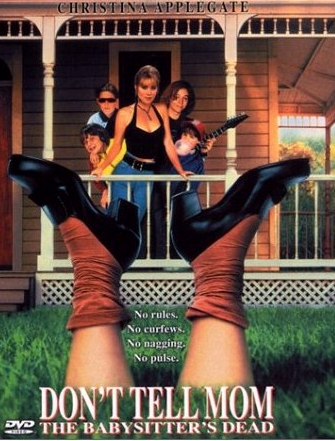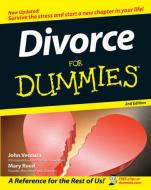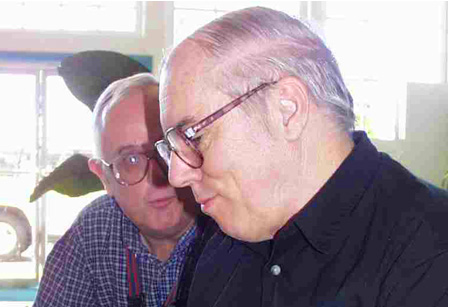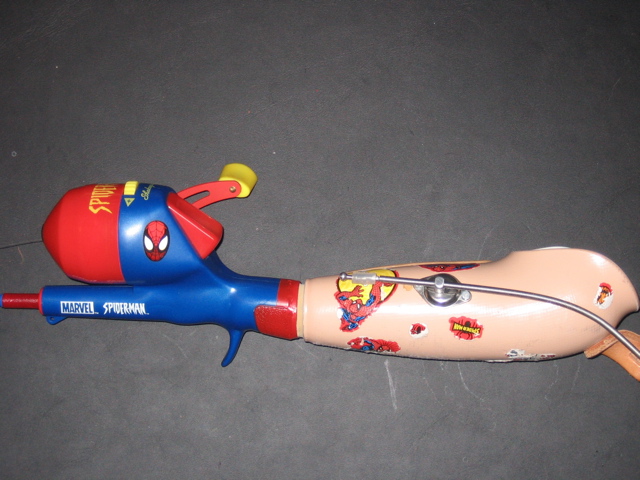
Hugo Chavez was once Venezuela's media darling. The love affair has taken increasingly bad turns. Now, he is the media.
A note about the author:
Rodrigo L. Arcaya is a 36-year-old Venezuelan who owns a web development company in Caracas. He is an iconoclastic, anti-authoritarian opponent of excess state power.
As the world now knows, Chavez shut down Venezuela’s respected 53-year-old TV station RCTV, accusing it of "subversive activities." Out in the streets of Caracas, and in many other cities, people have been taking to the street — particularly the high school and college students. This has caused incredible traffic jams here in Caracas, as the most common form of protest is to close the streets, leaving only one lane for the cars. Many of the drivers that have been trapped in these traffic jams show their support for the dissenters by keeping their emergency lights on, shouting slogans against the government and even stopping their own cars on the only open lane.
But why are people here so upset? Because Chavez is clearly making a play to control the national TV media as a mouthpiece for his government. He is doing this using a little-known law that resembles the U.S.'s Emergency Broadcast System.
Some background on the relationship between Chavez and the Venezuelan TV media is needed. In Venezuela, we have four TV channels that have national coverage, and about twelve local ones. Of the four national channels, we have RCTV (whose license was just revoked), Venevision and Televen, which are privately owned, and VTV, which is owned by the government. At the local level, the most important is Globovision (which Chavez is threatening), a 24 hour news channel. It has coverage in all major cities (it's pretty spotty in rural areas). It's also worth mentioning the Asamblea Nacional channel (think C-Span, owned by the government), and TeleSur, a 24 hour news channel that is co-owned by the governments of Venezuela, Brazil, Argentina and other Latin American countries.
We don’t really have many local cable channels. Most cable channels are Spanish language versions of U.S. networks (FOX — the entertainment channel, and MTV. We also get the U.S. versions of Fox News and CNN in English) or channels oriented toward Latin America as a whole.
Venezuela has an odd little law that most international analysts don’t comment on. But the law plays an important role in this narrative. It allows the president to order all TV (including local stations going through cable) and radio station to transmit the same signal that is being transmitted through the government channel. The idea is that the president can have a way to talk to all the country in an emergency. In theory, it is not much different from the U.S. Emergency Broadcast System, but it's centralized through the presidency. We call it a “chain†— as all the signals are chained to one.
However, the idea is not the same as the application, as we will see in a moment.
Hugo Chavez is truly a Media Phenomenon. He entered Venezuela's collective psyche when he led an unsuccessful coup against Carlos Andres Perez in the year ’92, while he was an active officer in the Venezuelan army. After he was captured, some of his army accomplices did not put down arms, so the government put him on camera to prove that they actually had him in custody. He was shoved in front of live news cameras, and he said, “Comrades, I assume all the blame for the failure of our operation. We have been defeated. For now...â€
With those words, people fell in love with him. Not only had he assumed responsibility for his failure (an uncommon trait among political leaders everywhere), but even in his defeat, he had the courage to see a future where he would be victorious.
And if the people fell for him, the private TV channels positively swooned. The private TV networks were instrumental in getting the idea out that Chavez and his people were not actually traitors to their oath to protect Venezuela. In fact, they were young idealists who — by following that oath to its last consequence — had to rid Venezuela of its corrupt ruling government. In that climate, Chavez and his co-conspirators were pardoned by then President Caldera. The love affair was not surprising. Since the end of the ’80, most of the private media had turned really critical of the government.
Fueled by this media frenzy, Chavez created his party MVR, and against all prognostics, managed to win the ’99 election.
For the first two years, the relationship between private media and Chavez can only be described as a honeymoon. The happy marriage started to fray when, after having a new constitution approved, Chavez started to demand “legislative powers.†The idea was that the presidency could draft up new laws and get them approved, bypassing congress. Private media was critical of the move, but Chavez had a convenient way to retaliate. Every time he wanted to tell his side of the story, he just ordered a “chain†and started talking through all the TV and radio channels.
Things quickly became quite surreal. One time, I was driving to work and turned on the radio. The only thing I could hear was a “thump-thump-thump†noise. I flipped to the next station, and the next one, and the next one. "Thump-thump-thump." Was my radio broken? Had aliens attacked, jamming all the radio waves? I got to my office, turned on the TV, and found that the president had decided to “chain†a live broadcast about the inauguration of the construction of a tunnel where Chavez worked on a hydraulic hammer for about half an hour. "Thump-thump-thump."
This brings to mind the strangeness of the April 11, 2002 "coup." I’m not even going to try to explain that Gordian knot of surrealism in this dispatch — but let me introduce a few basic facts.
On that morning, quite a few people in Caracas took to the streets (the numbers range from the Government estimate of 20,000 to over a million claimed by the opposition — judge for yourself from this picture or this one.) This throng of dissenters had decided to march to Miraflores (think the White House) to show the President that they were real. (You see, Chavez' government had claimed that there were only a few people at previous protest marches. They claimed that the TV channels were using special effects and most of the protesters were actually “virtual people.â€)
The crowd on April 11 got a little out of hand. In fact, it was a bit of a riot, but the demonstrators were essentially unarmed. (Venezuela is a bit like Texas, so we have to assume that some folks may have had guns).
Just as the march was approaching Miraflores, Chavez “chained†the broadcast, and started giving a speech. He told the people that the situation, which people had been watching on their TVs, had been calmed. He appealed to the few "misguided people" that were coming to Miraflores to think twice. At the same time, open warfare had come to the streets of Caracas. People on both sides were dying. A group of Chavez supporters that were “guarding†Miraflores opened fire on the march. The police and some people on the march started firing back. Or, maybe the government narrative was correct and the marchers started shooting the government supporters first. Either way, el Presidente was on live TV saying everything was under control while, less than 6 blocks away, people were firing guns at other people.
At this point, all the TV stations came to a decision: They would respect the spirit of the law, and keep the president’s feed, including the audio. But they split the screen, so that people could see what was actually going on at the same time. This is the main reason the government now says that RCTV was behind the coup. You see, if those images hadn’t been broadcast, people would not have started rioting all over the country.
Of course, RCTV, Venevision, Televen and Globovision all did this. So why did Chavez single out RCTV? This one is a no brainer: over the last two years, there has been talk about the end of the concession to RCTV, Televen and Venevision. And in these last two years, both Televen and Venevision have been letting go of their hard-hitting journalists. They have stopped reporting things that the government doesn't like. This self-censorship hasn't been at all covert. Everybody here knows. It is telling that the ratings of Televen and Venevision have dropped, while RCTV’s ratings climbed to over 40%. It is also telling that cable subscriptions have jumped to 60% in urban areas and is rapidly increasing.
The concessions for Televen and Venevision have been renewed for five years. And, as everyone now knows, RCTV – Venezuaela's first network — stopped broadcasting this Sunday, May 27.
Many naïve, foreign “Chavistas†seem to believe that the government “only†stopped a concession, and that they did not interfere with a private, independent media company. That is false. This is particularly illustrated by what followed.
On Thursday, May 24, a group of “concerned citizens†entered a plea with the Supreme Court. They claimed that shutting down the RCTV signal was unconstitutional, because RCTV was the channel with the greatest coverage in the country. The litigants claimed that if their signal was to disappear, a lot of people were going to be left without TV. The intention of this suit was devious. On Friday (less than 24 hours later — it usually takes a year to get a case before the court) the Supreme Court ruled that, in defense of the citizen’s rights, RCTV had to give, without payment of any kind, all their broadcast equipment to the new government channel that was to operate in their old frequency.
So the government has a brand new channel. This is not about a concession. This is about a Government taking control of a private media company. They claim they're doing this to “increase the free speech in the country.†Here's the logic: before Sunday, we had two strongly critical networks (RCTV and Globovision, which is local), two uncritical but indifferent networks (Televen and Venevision), and one strong Chavez supporter (VTV). With RCTV out of the picture, the number of strong opposition messages are reduced. According to government spokespeople, these voices are somehow replaced by something they call community messages: “Messages produced by The People, for The Peopleâ€, as they say. Thus, of course, there will be more free speech. (I’m not making this stuff up. These are actual arguments used by government spokespeople.). Of course, when you realize that one of the principal party slogans of the government is “Chavez is The People,†this message turns even more sinister.
As of today, there are still people who refuse to give up. They are willing to keep the protest going for as long as it takes to bring RCTV back. Meanwhile, a YouTube channel, created by the news crew of RCTV, continues to post news content, including footage of protests that no other TV channel here is showing. It has had more than 71,000 views in just two days — an enormous number when you consider that Internet penetration here is below 15%. As of this writing, it is number two on YouTube's "Channels" listing for new subscribers.
It looks like things will get worse. The President is talking about shutting down Globovision for — and I swear that I'm not making this up — "subliminal association." His evidence: during a talk show with the head of RCTV last Friday, every time that they cut to commercials they showed a little clip of the most important news events that have been covered by their news department: the first landing on the moon, the return of democracy to Venezuela in 1958, and so on. During one of these segments they showed the Pope's assassination attempt, while playing Ruben Blades song that says, “Everything comes to an end†as music background. The regime claims that they were subliminally inciting people to kill President Chavez. Yesterday the General Attorney announced that both the General Director of Globovision, and the anchor of the talk show have been summoned to be “interviewed†regarding this “plotâ€.
Hugo Chavez is a world-class authoritarian. Those of us who are anti-authoritarian and who have seen it up close, tend to know more than those beyond our borders, about what he has done and how he has done it in his almost 8 years of government. It seems that there is a sort of racism underlying some of the sympathies and excuses made by American and European dissidents (who should know better) for the Chavez regime. They imagine that Latin American people are backwards and need an authoritarian government. In fact, most educated Latin Americans are quite accustomed to free speech and basic human rights. We don't really need the paternalism… but thanks anyway.
Of course, this regime is no ordinary Autocracy. If it were, probably most of the people in Venezuela (and in the rest of the world) would have wised up and recognized it as one. What we are living now down here can only be described as a Surreal Autocracy.
Frankly, I've kind of enjoyed this government. Its comedic moves have provided daily amusements. If I wasn’t aware of the really terrible consequences of continuing down this road, I’d be trying to prop up this regime and find it an agent in the entertainment industry. If people outside the country really knew what is going on here, they could make an astounding reality show and sell it on pay-per-view. We have members of the Congress who claim they have discovered that the DirectTV set-top boxes have bi-directional communication capabilities and that they had cameras and microphones that transmit, by satellite, to the central headquarters of the CIA. (Actually, I guess some American conspiracy freaks wouldn't find this claim the least bit nutty.) Then there was the very serious announcement from Chavez about how the government managed to stop a plot to kill the president. You see, they found this bazooka in an empty lot that lies kind of near the flight path of Venezuela's biggest commercial airport. And — ohmygod! — it's the very same airport that the presidential plane uses. They also found a picture of Chavez. Aha! This was a plan to hit the presidential plane — the picture of the president was for “obvious identification purposes." No one was ever arrested for this clever and devious plot.
These sorts of things happen here at least on a weekly basis. Indeed, I've developed a morbid obsession with the entertainment value of this government. But now, I think it's time for a new show.
See Also:
Closing Pandora's Box: The End of Internet Radio
Homeland Security Follies
Is It Fascism Yet?
Detention and Torture: Are We Free Or Not?
EFF and 10 Zen Monkeys vs. Michael Crook and DMCA
The Crooks of the World Hurt Copyright, Free Speech





























